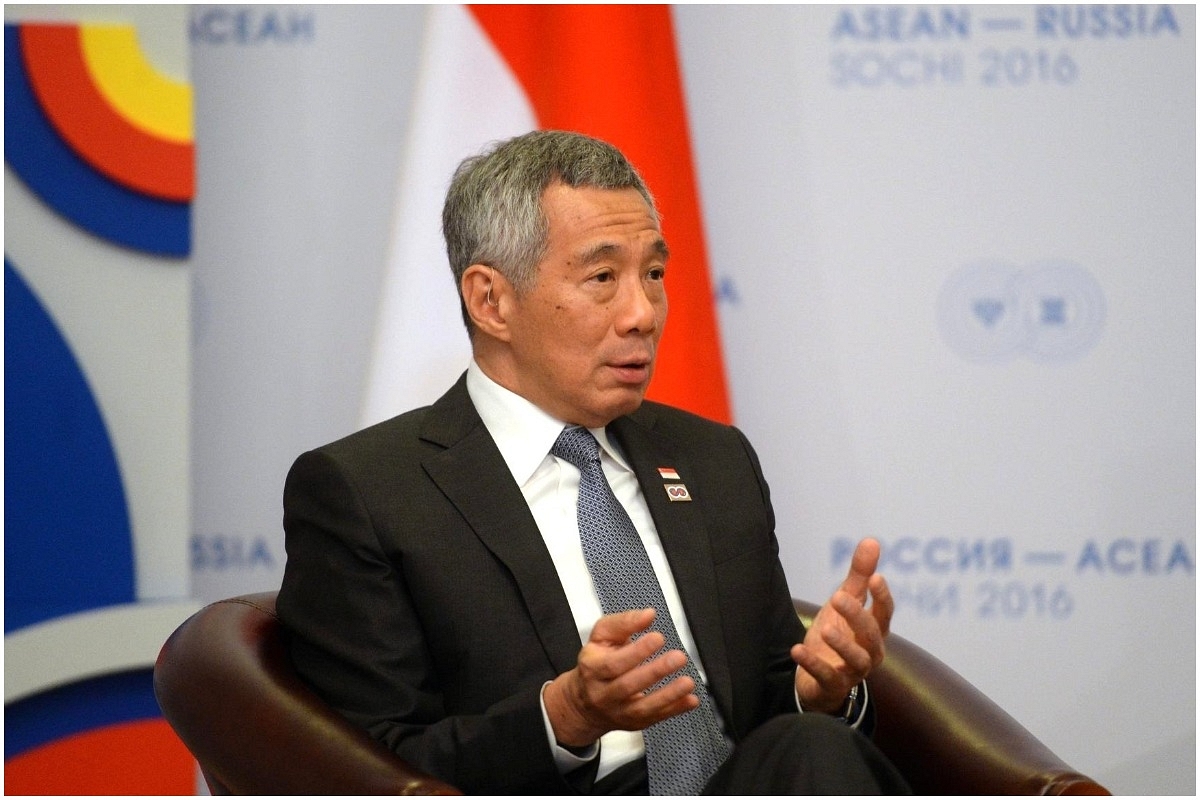News Brief
How Singapore Is Fighting Covid-19 And Why A Similar Effort May Not Be Possible In India
- The push and pulls of a noisy democracy may not permit India to implement the harsh measures which Singapore has.

Lee Hsien Loong (Kremlin)
The coronavirus outbreak around the globe is also an opportunity to compare the public health response system of different countries.
Previously, we had reported how Taiwan, a small country so close to China, South Korea, Japan - all three heavily affected by the virus - had managed to save itself from a massive outbreak.
Another Asian country, Singapore, is in the news for containing the outbreak with efficiency.
Singapore has been in the headlines for providing very detailed information about its coronavirus cases with great speed.
Reportedly, Zhi Peng Lee’s website provides charts and maps with patients’ ages and nationalities, length of hospitalisation, where they live, their connections to one another and how the number of cases has risen and fallen with time.
The 29-year-old founder of a coding school has built co.vid19.sg site using Singapore’s publicly available data. The website is a simple yet comprehensive source of information about the outbreak.
Lee said that he would like to launch a similar website for USA, but “the issue is the data — it’s not even close.”
Singapore has systematically disclosed information about infections. The government posts daily updates with details about each new case — down to the person’s age, sex, nationality and the street where they live.
This becomes especially important in the light of the fact that it has high population density — most residents live in high-rise apartments — and a high volume of travellers from China.
Why India won’t be able to do what Singapore has done
Singapore is a de facto one-party state where official actions are rarely questioned publicly. The city-state has been run by the same party for more than half a century.
After the first local transmission of the new coronavirus was reported in early February, the government quickly banned school gatherings and asked businesses to call off large events.
And now, the government is considering “a fuller range of social distancing measures” including possible school closures and work-from-home directives.
The government has not hesitated in disclosing the private information of the coronavirus patients to public, or imposing tough penalties for breaking quarantine or furnishing false information.
As many as 100 Singaporean police investigators are on duty for questioning patients and their close contacts, to locate anyone who might have been exposed to the virus.
Anyone entering a public building has their temperature taken, and is required to log their phone number and any recent travel to a virus-affected zone.
The country is also using its extensive surveillance systems with more than 86,000 CCTV cameras to catch infected persons who might have slipped out of the official count.
Singapore has quarantined more than 3,700 people, and those who fail to cooperate have been punished.
In a noisy democracy like India, these steps would be difficult to take as activists may raise alarm on privacy or other rights’ violations.
If government takes strict actions against those misreporting, or breaking quarantine rules, it will face charges of “authoritarianism”. Enforcing a ban on the public gatherings, mandatory work-from-home or other similar measures are almost impossible to implement in India.
Also, in the face of the lack of strict epidemiological surveillance and contact tracing procedures, transparency and communication are affected, giving space to panic.
Secondly, the public health system in India is heavily burdened.
On the other hand, Singapore, after the 2003 SARS outbreak, upgraded its medical equipment and infrastructure, built more isolation wards and created systems to map and trace the spread of infections.
Introducing ElectionsHQ + 50 Ground Reports Project
The 2024 elections might seem easy to guess, but there are some important questions that shouldn't be missed.
Do freebies still sway voters? Do people prioritise infrastructure when voting? How will Punjab vote?
The answers to these questions provide great insights into where we, as a country, are headed in the years to come.
Swarajya is starting a project with an aim to do 50 solid ground stories and a smart commentary service on WhatsApp, a one-of-a-kind. We'd love your support during this election season.
Click below to contribute.
Latest